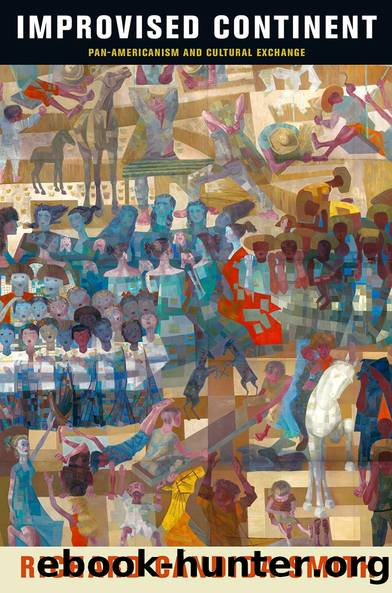Improvised Continent by Richard Cándida Smith

Author:Richard Cándida Smith [Smith, Richard Cándida]
Language: eng
Format: epub
Tags: History, Americas (North; Central; South; West Indies), Social History
ISBN: 9780812294651
Google: aLUyDwAAQBAJ
Publisher: University of Pennsylvania Press
Published: 2017-08-25T22:18:44+00:00
Chapter 11
The New Latin American Novel in the United States
Shortly after Alejo Carpentierâs Los pasos perdidos (âThe Lost Stepsâ) had been published in 1953 in Mexico, Harriet de OnÃs wrote to Knopf suggesting she prepare an English translation. Critics throughout Spanish-speaking America hailed Carpentierâs third novel as one of the most important books ever written in their region. Sales were strong even though the book business was depressed across Latin America. The narrator of the book is a composer living in New York City who travels deep into the interior highlands of a South American country to find an indigenous group whose music had been recorded during a previous expedition. He is to bring back examples of the groupâs musical instruments that may well be similar to those the earliest humans made. Given that his mission is to go back to the dawn of human society, the novel proceeds, section by section, as a series of steps back into time: from the spiritually empty but comfortable modernity of Manhattan to the urban chaos of the modernizing capital city in a country modeled after Venezuela, where the narrator arrives in the midst of a bloody uprising against the local dictator. He escapes the capital city for the nearby farmlands and ranches, where people still live much as they did in the nineteenth century. As he travels up the countryâs major river into the barely populated interior, he enters an America continuing in the throes of the European conquest, a world that he likens to that of the Homeric epics. Then the narrator plunges into the Stone Age of the continentâs indigenous peoples, who live in a world of pure, purposeless freedom. The hero discovers an imaginative universe promising psychological wholeness to anyone prepared to scrape away everything unessential and return to the purity of origins.
Herbert Weinstock, Knopfâs foreign acquisitions editor, decided to reject the work, explaining that the book was not original and was âan assemblage of highly recondite references to philosophy, music, religion.â He thought that it was impossible for the book to pay back the expense involved in translating, publishing, and marketing it.1 In defending the book against the initial decision to reject, de OnÃs compared Carpentier to James Joyce and William Faulkner in terms of potential importance.2 Weinstock promised to reconsider if a planned French edition did well.3 The French translation appeared in 1955, and the edition won the Best Foreign Book Prize for the year, auspicious for it suggested that Carpentier was becoming a likely contender for the Nobel Prize in Literature.4 Weinstock contacted Carpentierâs agent in France and de OnÃs to inform them that Knopf wished to move forward with an English version. He confessed, âMy often-expressed despair over interesting American readers in Latin-American novels led me to be overcautious in my first reactions to Los Pasos Perdidos.â5
Weinstockâs initial fears that Carpentierâs book would fail proved correct. The reviewer in the New York Times disliked the book, as did several other reviewers. However, overall critical response was positive, and often strongly so.
Download
This site does not store any files on its server. We only index and link to content provided by other sites. Please contact the content providers to delete copyright contents if any and email us, we'll remove relevant links or contents immediately.
Cat's cradle by Kurt Vonnegut(15360)
Pimp by Iceberg Slim(14513)
4 3 2 1: A Novel by Paul Auster(12395)
Underground: A Human History of the Worlds Beneath Our Feet by Will Hunt(12100)
The Radium Girls by Kate Moore(12032)
Wiseguy by Nicholas Pileggi(5789)
The Fire Next Time by James Baldwin(5450)
Perfect Rhythm by Jae(5407)
American History Stories, Volume III (Yesterday's Classics) by Pratt Mara L(5309)
Paper Towns by Green John(5193)
Pale Blue Dot by Carl Sagan(5011)
A Higher Loyalty: Truth, Lies, and Leadership by James Comey(4965)
The Mayflower and the Pilgrims' New World by Nathaniel Philbrick(4506)
The Doomsday Machine by Daniel Ellsberg(4491)
Killers of the Flower Moon: The Osage Murders and the Birth of the FBI by David Grann(4449)
The Sympathizer by Viet Thanh Nguyen(4395)
Too Much and Not the Mood by Durga Chew-Bose(4349)
The Borden Murders by Sarah Miller(4327)
Sticky Fingers by Joe Hagan(4203)
